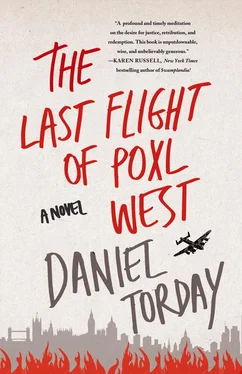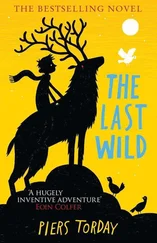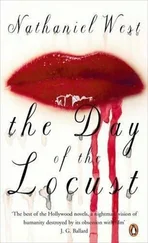I could believe it.
He continued.
“If I could meet a WAAF or some girl in town,” he said.
My kind slovenly friend Gallsworthy needed my help finding love. Even for him a taste of death over Hamburg had touched off a longing for love. I told him that when we were back in London he would come with me and meet my cousin Niny.
“Let’s have the picture of her,” Gallsworthy said. We were back to our Nissen hut by now and though he’d seen the photograph a thousand times, I went to my footlocker and picked out the photo of Niny, Johana, and me along the Elbe in Schalholstice, just outside Brüder Weisberg. We stood beside one another, not touching, and behind us the very vats were sunk into the ground, inside of which my father’s men submerged the hides in need of tanning.
Gallsworthy was the drunkest I’d ever seen him. Now he was lying back on his bed. I took him the photo and he held it very close to his face and said, “Niny, Niny, Niny,” an incantation, until his arms bent back and the picture sat against his chest. He passed out dreaming of my cousin and of the image of my Elbe, which he knew only from that photograph, and which no amount of killing or distance could ever rob from my memory.
9.
Next few days we awoke to fog so thick it was as if we were back up among the clouds. By Wednesday there was an even heavier cover, morning announced only by a subtle glowing change in hue. The Americans were grounded during the day, just as we were at night. It was Thursday before another run could be attempted. Some kind of electricity ran through the crewmen in the briefing room — our turning points were changed, but the destination remained:
We were to make a second run on Hamburg.
All the other bombers in our squadron had flown a second run on the city Tuesday, but we’d been grounded. Upon takeoff we had lost oil pressure and were forced to return to base. They reported what we had: a clear, safe run to the city. There was an edge to their stories. They’d experienced a parallel success to ours, but now they described flying into a column of smoke so thick they could taste soot from the city in their oxygen masks. We had fuzzy heads the days after our victorious run. We had time on our hands from the failed takeoff and the fog. Idle, we began to consider what we’d done.
“How many you suspect we killed on that run?” Gallsworthy said at breakfast. “Thousand? Two?”
“More, I’d think,” McSorely said.
“More than two thousand,” Gallsworthy said. “That’s a lot of civilians.” He paused and took a bite of his sausage. “That’s a lot of anything.”
“Well sure,” McSorely said. “But it’s a huge city. There’re plenty more who survived.”
Again from the edges of my memory came that image: cobblestones rising to mind; Glynnis’s pale skin. Françoise’s broad nose.
Wing Commander Pennington arrived and briefed us on our run. Flight Officer Rowlandson was to fly with S-Sugar on one more run before taking over his own commission.
Soon we lifted off again into a light mist. We weren’t far from base before it grew apparent this was to be a more challenging run. S-Sugar was among the lead bombers. No matter how high we rose through the clouds it felt we would never overcome them. Over the North Sea we finally broke from cloud cover to witness a blanket of undulating gray below. A bomber’s moon provided some light. It wasn’t a help for long. Navigator Smith called out coordinates for our upcoming turning point. We were miles out over the sea, passing above Heligoland, when before us was a billowing column of black pumice. My first thought was that this was what we’d wrought in Hamburg.
We’d ignited Germany. Here, rising nearly 35,000 feet above the ground, was the evidence. Then the swelling and dying of dozens of white explosions ran through the great black mass. It was hard to know how so much flak could be thrown into the air. Perhaps we were witnessing some unprecedented new Nazi weapon, some horrible counterpunch to the silver strips we’d dropped to disrupt Nazi radar and which had allowed us to light such a monumental conflagration.
“Flak ahead,” Navigator Smith called out. “Or … something.”
Gallsworthy came on the interphone next:
“Not flak,” he said. “Lightning.”
Before us was the largest cloud ever amassed in the air above Nazi Germany. As we passed over the German coast south of Cuxhaven, the great mass undulated. All through the cloud, branches of white fire spread and retreated like the passing of axons to synapses in the great black brain of the Reich.
Gallsworthy came over the interphone again:
“Perhaps we might consider turning back, Captain West.”
No sooner had the words escaped his mouth than Navigator Smith followed: “I’m not going out with an LMF”—lacking in moral fiber, the worst kind of discharge from the service. “You’re certain to get one, too, Captain West. How will that look for a citizen of a Nazi protectorate?”
We stayed in formation.
The bombers ahead pushed headlong into the cloud. Silence saturated our bomber. The only sound was the low, anxious rumble of nearby thunder. For once something wrought by the Lord had quieted Navigator Smith’s constant chatter. At last the sky grew angry as I was at the loss of my parents, of Françoise, of Glynnis. Like a tumid-eyed pup seeking his mother’s teat, we edged around the crevasses comprising the outer realm of that great black cur, which lit up so frequently it was difficult to know just what we were seeing.
We would fly directly into the cloud.
First came the winds. A current of cold air swept S-Sugar’s wings, rocking us until we banked right and then left. Soon we were alone amid dense cloud. No other bombers from our wing were visible.
Nothing was visible.
We pushed on, and then a flash — for a second I was blind. When I regained my sight, a deep blue glow enshrouded the cockpit. The de-icing tube on the other side of the perspex bore a halo of blue flame. Blue tendrils shot back and forth between Browning guns of the front turret Gallsworthy manned. All around the propellers to our left and right, blue auras outlined the blur of blades.
“I can see a kind of blue light between my guns,” Gallsworthy said over the interphone.
Navigator Smith said, “All over the instruments back here as well.”
Five seconds passed. The world again flashed so bright I was blind. This time when I regained my sight, the world was wholly suffused with corporeal blue. It was so cold I could not tell if I was experiencing electricity or air. Again the dark world flashed white so bright my sight was gone as if for good. A kind of mania gripped us in those moments as we looked in the eye of the lightning from a cloud in which we were sitting.
A pounding began on the fuselage. Gallsworthy came again over the interphone:
“We’re hit! We’re hit!”
Then navigator Smith: “I don’t see Jerry — does anyone see Jerry? — where’s Jerry?” No sooner had they spoken than we all saw it. The propellers were throwing off ice in chunks the size of shingles. Navigator Smith said he could see the ailerons icing over. In a matter of seconds we would freeze into a block and plummet like a bomb into the sea. I had my hand on the throttle, which pushed hard back against me. My grip slipped, then slipped again.
I took off my right glove.
I was in need of traction.
Now I pushed the column in hard. We dropped a couple hundred feet. The ailerons were icing worse. I knew if I were to try to fly higher, we’d never make it. I pulled back horizontal and desynchronized the engines. We shook like we were inside a paint mixer until I synchronized the engines again. No sound came over the interphone.
Читать дальше












